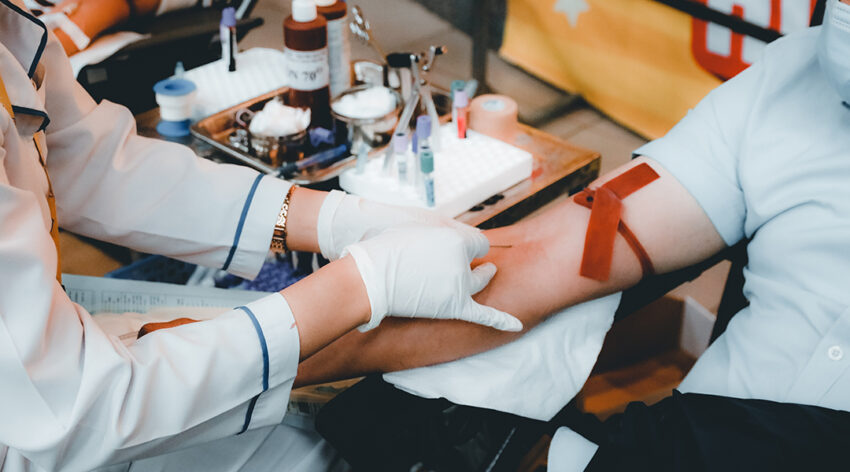Red blood cells grown in a laboratory have now been transfused into another person in a world first clinical trial.
In a world first, red blood cells grown in a laboratory have been transfused into volunteers as part of the RESTORE clinical trial being carried out in the UK. The trial, write the team in a press release published by the UK’s National Health Service (NHS) this month, is the first step toward making lab-grown red blood cells available for future clinical usage.
Blood transfusions are a life-saving procedure, however, according to NHS Blood and Transplant — the blood and transplantation service providers for the NHS — roughly 135,000 new donors are needed every year in England alone to ensure demand can be met.
“The fact is, blood stocks are incredibly low right now, yet millions of people every year depend on emergency blood transfusions for [emergency care], as well as those undergoing routine operations and regular treatment,” wrote Joe Smith for a blog published on the UK government’s website.
This is where manufactured blood could begin to help solve the problem, especially in patients with blood disorders, such as sickle cell anemia, and those with rare blood types, for whom it can be difficult to find blood matches.
“The need for normal blood donations to provide the vast majority of blood will remain,” said Farrukh Shah, medical director of transfusion at NHS Blood and Transplant, in a statement. “Patients who need regular or intermittent blood transfusions may […] develop antibodies against minor blood groups, which makes it harder to find donor blood. The potential for this work to benefit [these] hard-to-transfuse patients is very significant.”
The red blood cells used in the trial were grown from stem cells gathered from adult donors, and labeled with a tracer element that allowed them to be tracked through the body. Two people were transfused with around 5–10 mL — or one to two teaspoons — of the lab grown red cells, with no notable side effects reported.
In addition to safety, the trial is also looking to study the lifespan of the lab-grown cells compared with infusions of standard red blood cells from the same donor. The expectation is that the manufactured cells will perform better than donated red blood cells as they are still “fresh” whereas the donated blood contains cells of varying ages.
Further trials are needed before clinical use, but this research marks a significant step, say the team. “This challenging and exciting trial is a huge stepping stone for manufacturing blood from stem cells,” said Ashley Toye, professor of cell biology at the University of Bristol and director of the NIHR Blood and Transplant Unit.
“This is the first-time lab grown blood from an allogeneic [genetically dissimilar] donor has been transfused, and we are excited to see how well the cells perform at the end of the clinical trial,” she concluded.
Feature image credit: Nguyễn Hiệp on Unsplash

